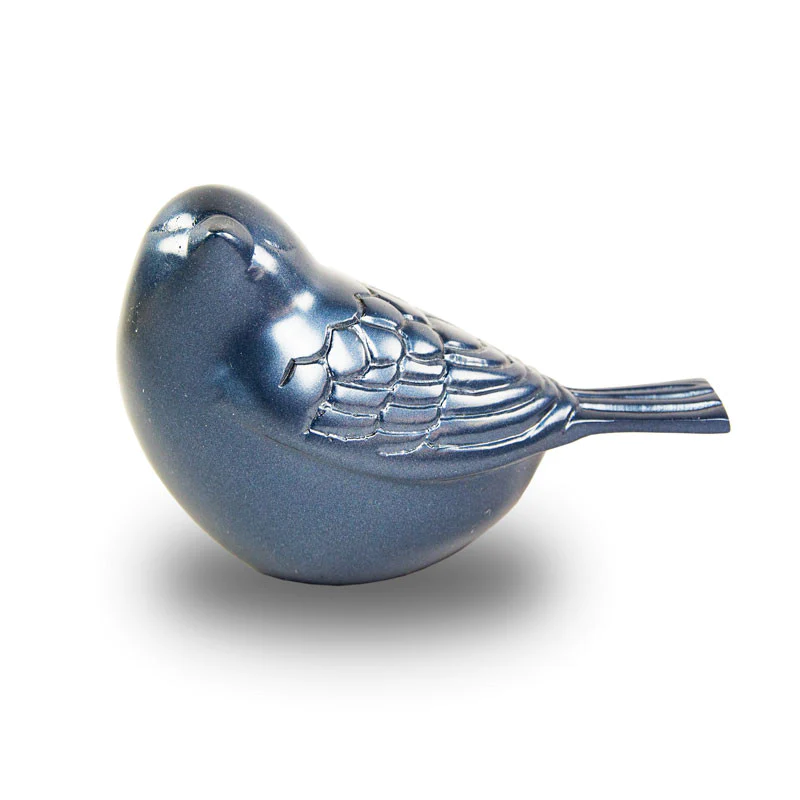

Losing a pet can be a heartbreaking experience, and providing support to someone who is grieving can make a world of difference. Knowing the right words to say can be challenging though, as you want to offer comfort and solace without minimizing their pain. In this article, we've compiled a list of 20 heartfelt things to say to support someone who has lost a beloved pet. Whether it's a comforting phrase, a fond memory, or a simple acknowledgement of their loss, these words can convey empathy and show that you understand the depth of their emotions. From expressing condolences to offering a listening ear, these suggestions aim to provide guidance on how to be there for someone during this difficult time. By choosing your words carefully and showing compassion, you can help ease their grief and remind them that their pet's memory will always be cherished.
The Importance of Supporting Someone Who Has Lost a Pet
Losing a pet is often an underestimated loss. Some people may not fully understand the deep bond between a pet and their owner, but for those who do, the pain can be overwhelming. It's crucial to recognize the significance of this loss and offer support to those going through it. Acknowledging their grief and providing a compassionate presence can make a tremendous difference.
Losing a pet means losing a companion, a confidant, and a source of unconditional love. Pets become part of the family, and their absence can leave a void that is hard to fill. It's important to remember that the grief someone feels after losing a pet is real and deserves to be treated with empathy and understanding. By acknowledging the importance of their pet and the depth of their loss, you can show them that their feelings are valid.
Supporting someone who has lost a pet is not just about offering condolences; it's about being there for them through the grieving process. Pet owners may experience a range of emotions, including sadness, guilt, anger, and even denial. Understanding the stages of grief and being aware of the rollercoaster of emotions they may go through can help you provide the right kind of support. Remember, the grieving process is unique to each individual, so it's crucial to be patient and understanding.
Pets often provide comfort and unconditional love during difficult times, and losing them can be particularly devastating for someone going through a challenging period in their life. By offering support and understanding during this time, you can help them navigate their grief and find solace. Your presence and compassion can provide a sense of comfort and remind them that they are not alone in their pain.
Understanding the Grieving Process for Pet Loss
The grieving process for pet loss can be complex and unique to each individual. It's essential to recognize and respect the stages of grief that someone may go through during this difficult time. By understanding these stages, you can provide the right kind of support and offer words that resonate with their emotions.
The first stage of grief is often shock and denial. When someone loses a pet, they may find it hard to believe or accept the reality of the loss. During this stage, it's important to be patient and offer gentle reminders that their pet is no longer with them. Acknowledge their pain and reassure them that it's normal to feel a range of emotions.
The second stage is often characterized by anger and guilt. Pet owners may blame themselves for not doing enough or feel angry at the circumstances that led to their pet's passing. During this stage, it's important to offer reassurance and remind them that they did everything they could to provide a loving and caring environment for their pet. Encourage them to let go of any guilt they may be feeling and focus on the happy memories they shared with their beloved companion.
The third stage of grief is often marked by sadness and depression. The reality of the loss sinks in, and pet owners may experience intense feelings of sadness and loneliness. During this stage, it's crucial to offer a listening ear and a shoulder to lean on. Encourage them to express their emotions and share stories about their pet. Listening attentively and validating their emotions can provide immense comfort during this time.
Words of Empathy and Understanding
When someone loses a pet, finding the right words to say can be challenging. You want to offer comfort and support without minimizing their pain. Here are some heartfelt things you can say to show empathy and understanding during their time of grief.
"I'm so sorry for your loss. Your pet brought so much joy and love into your life, and their memory will always be cherished."
"I can't imagine how difficult this must be for you. Your pet was an important part of your family, and their absence is deeply felt."
"Please know that I'm here for you. If you want to talk, reminisce about your pet, or simply have someone to listen, I'm here to support you."
Sharing Fond Memories of the Pet
Sharing fond memories of the pet can be a powerful way to show support and keep their memory alive. By recalling happy moments and stories, you can help the grieving individual find comfort in the love they shared with their pet.
"I'll always remember how your pet would greet me with a wagging tail and a big smile. They had such a joyful and loving personality."
"I'll never forget the time we spent together with your pet. They brought so much happiness into our lives, and their memory will forever be etched in our hearts."
"Your pet had a unique way of brightening up any room they entered. The love and joy they brought into your life were truly special."

Offering Practical Help and Support
During the grieving process, practical help and support can make a significant difference. By offering assistance with tasks or responsibilities, you can alleviate some of the burdens and allow the grieving individual to focus on healing.
"If you need any help with cleaning up your pet's belongings or arranging for their final resting place, please don't hesitate to ask. I'm here to support you in any way I can."
“I know that taking care of daily tasks can be overwhelming right now. If you need help with anything, whether it's walking your other pets or running errands, please let me know.”
"I understand that your pet's passing can be emotionally and financially challenging. If you need assistance with veterinary bills or any related expenses, please don't hesitate to reach out."
Providing a Listening Ear
Grief can be a lonely journey, and having someone to listen can provide immense comfort. By offering a listening ear, you create a safe space for the grieving individual to express their emotions and share their memories.
"I'm here to listen whenever you're ready to talk. Whether it's sharing stories about your pet or expressing your feelings, know that I'm here to support you."
"If you ever need someone to vent to or simply cry with, I'm here for you. Grief can be overwhelming, but you don't have to face it alone."
"Talking about your pet and the emotions you're experiencing can be therapeutic. I'm here to listen without judgment and provide a shoulder to lean on."
Acknowledging the Pain and Validating Emotions
Grief can be a complex mix of emotions, and it's important to acknowledge the pain and validate the emotions someone is experiencing. By letting them know that their feelings are valid, you create a space for healing and acceptance.
"I can see how much you loved your pet, and their loss has left a significant void in your life. Your pain is valid, and I'm here to support you through this difficult time."
"It's completely normal to feel a range of emotions after losing a pet. Whether you're feeling sadness, anger, or guilt, know that what you're experiencing is valid, and I'm here to help you navigate through it."
"Grief is a natural response to loss, and it's okay to feel overwhelmed. Your emotions are valid, and I want you to know that I'm here to support you in any way I can."
Encouraging Self-Care During the Grieving Process
Taking care of oneself during the grieving process is essential but often overlooked. Encourage the grieving individual to prioritize self-care and offer suggestions on how they can find solace and healing.
"During this difficult time, it's important to take care of yourself. Try to engage in activities that bring you comfort, whether it's spending time in nature, practicing mindfulness, or seeking support from a grief counselor."
"Remember to be kind to yourself during this grieving process. Rest when you need to, eat well, and surround yourself with people who understand and support you."
"Self-care looks different for everyone, but finding ways to honor your emotions and take care of your well-being is crucial. Whether it's journaling, seeking therapy, or engaging in creative outlets, prioritize what feels right for you."
Suggesting Ways to Honor and Remember the Pet
Finding ways to honor and remember the pet can provide comfort and closure. Offer suggestions on how the grieving individual can keep their pet's memory alive and create a lasting tribute.
"Creating a memorial for your pet can be a beautiful way to honor their memory. Whether it's planting a tree in their favorite spot or making a scrapbook filled with cherished memories, find a way to keep their spirit alive."
"Consider donating to an animal shelter or volunteering your time in honor of your pet. Helping other animals in need can be a meaningful way to pay tribute to the love and joy your pet brought into your life."
"If you feel ready, consider adopting another pet when the time is right. Giving a loving home to another animal can be a powerful way to honor your pet's memory and continue their legacy of love."
Conclusion: The Power of Compassion and Support During Pet Loss
Losing a pet is a deeply emotional experience, and providing support to someone who is grieving is invaluable. By choosing your words carefully and showing compassion, you can help ease their grief and remind them that their pet's memory will always be cherished. From expressing condolences to offering practical help and a listening ear, your presence can provide comfort during this difficult time. Remember, grief takes time, and being there for someone throughout their grieving process can make a world of difference.
FAQs
What are the shipping options for my memorial?
Oaktree offers free nationwide shipping on all urns and cremation jewelry items, with delivery typically taking 2-5 business days, including processing time. Need it sooner? Expedited shipping (overnight or 2-day) is available at checkout for an additional cost, and we will also prioritize processing for faster delivery. If you need international shipping, please contact us first to confirm availability and rates.
How long will it take for my engraved item to arrive?
Engraved urns and cremation necklaces require an additional 1-3 business days for personalization before shipping. If you need faster delivery, please contact us—we’ll do our best to expedite processing and accommodate your timeline. Expedited shipping options are also available at checkout to ensure your memorial arrives as soon as possible.
What do I do if I never received my order?
If your order hasn’t arrived within 10 business days, please contact us so we can track your shipment and resolve any issues. We’ll ensure your memorial reaches you as soon as possible.
What do I do if I received a defective order?
If your order arrives damaged or defective, contact us right away. We take pride in our high-quality craftsmanship and will work quickly to replace or repair your item at no additional cost.
Can I return my urn or cremation necklace? What is your return policy?
Oaktree offers a 100-day return and exchange policy for non-engraved items. Due to personalization, engraved urns are final sale and cannot be returned. For full details on how to start a return or exchange, visit our Returns & Exchanges page.
How do I make changes to an urn I’ve already ordered?
If you need to modify an order, contact us as soon as possible. If your urn is already engraved, we may not be able to make changes, but we’ll do our best to accommodate your request before processing.
How are your urns made? Where do the materials come from?
Oaktree’s urns are handcrafted in the USA and Europe using sustainable, locally sourced materials. Our artisans ensure each piece is beautifully designed and built to honor your loved one’s memory with care.
How do I choose the right urn size?
Each product page includes detailed dimensions, weight capacity, and cubic inches to help you select the right urn. As a general guide, 1 cubic inch holds 1 pound of pre-cremation weight. If you need help choosing, feel free to contact us.
Some urns are marked as “sold out.” When will they be available?
Our handmade urns may take a few weeks to restock. If you’re interested in a specific style, contact us for an estimated restock date, and we’ll notify you when it’s available.
Does Oaktree place the ashes into my urn?
Yes, we offer an optional ash transfer service for an additional fee. If you’d like us to handle this process, please contact us when placing your order. You’ll need to mail the ashes to us, and we’ll carefully transfer them into your selected urn.
How do I transfer ashes into my urn?
Cremated remains typically arrive in a sealed plastic bag inside a plastic container. To transfer them, simply place the sealed bag inside your urn. If needed, use a funnel for precise placement. If you have any concerns, our team is happy to assist.
How do I order an engraved urn?
To personalize your urn, select “Yes” under “Would you like your item engraved?” on the product page. If you’d like a custom design beyond standard engraving, contact us and we’ll explore options to create a unique tribute.
Can my urn be shipped directly to a funeral home?
Yes! During checkout, you can enter the funeral home’s address for direct shipping.
Can I customize my urn beyond engraving?
Yes! In addition to engraving, we offer custom design services, including unique finishes, symbols, or artwork. If you’d like to personalize your urn beyond standard options, contact us to discuss customization possibilities.
What materials are Oaktree urns made from?
Our urns are crafted from premium materials such as wood, ceramic, marble, metal, and biodegradable materials. We focus on sustainable sourcing and high-quality craftsmanship to create lasting memorials.
Do you offer keepsake urns or mini urns?
Yes, we offer keepsake urns and mini urns, which are smaller versions designed for sharing ashes among family members or keeping a small portion as a personal tribute.
Can I pre-order an urn for future use?
Absolutely! Many customers choose to pre-order an urn in advance. This ensures availability and allows for customization without time constraints. Contact us to arrange a pre-order.
Do you offer pet urns?
Yes, we provide a range of pet memorial urns designed to honor beloved pets. These are available in different materials and sizes to suit dogs, cats, and other pets.
How do I clean and maintain my urn?
Urns require gentle care to maintain their beauty. Use a soft cloth and mild cleaner for metal or ceramic urns. Avoid direct sunlight and moisture to preserve wood urns. Contact us for specific care instructions based on your urn’s material.
Can I travel with an urn? Are they TSA-approved?
Most Oaktree urns are TSA-compliant, making them safe for air travel. Choose a non-metal urn to ensure easy screening. We recommend carrying the urn in your carry-on bag and bringing the cremation certificate from the funeral home.
How do I track my order?
Once your order ships, we’ll send you a tracking number via email. You can use this to monitor the shipment status. If you don’t receive tracking details, contact us for assistance.
How do I contact Oaktree if my question isn’t answered here?
We’re happy to assist! Visit our Contact Us page to reach us via email, chat, or phone. Our compassionate team is ready to help.








